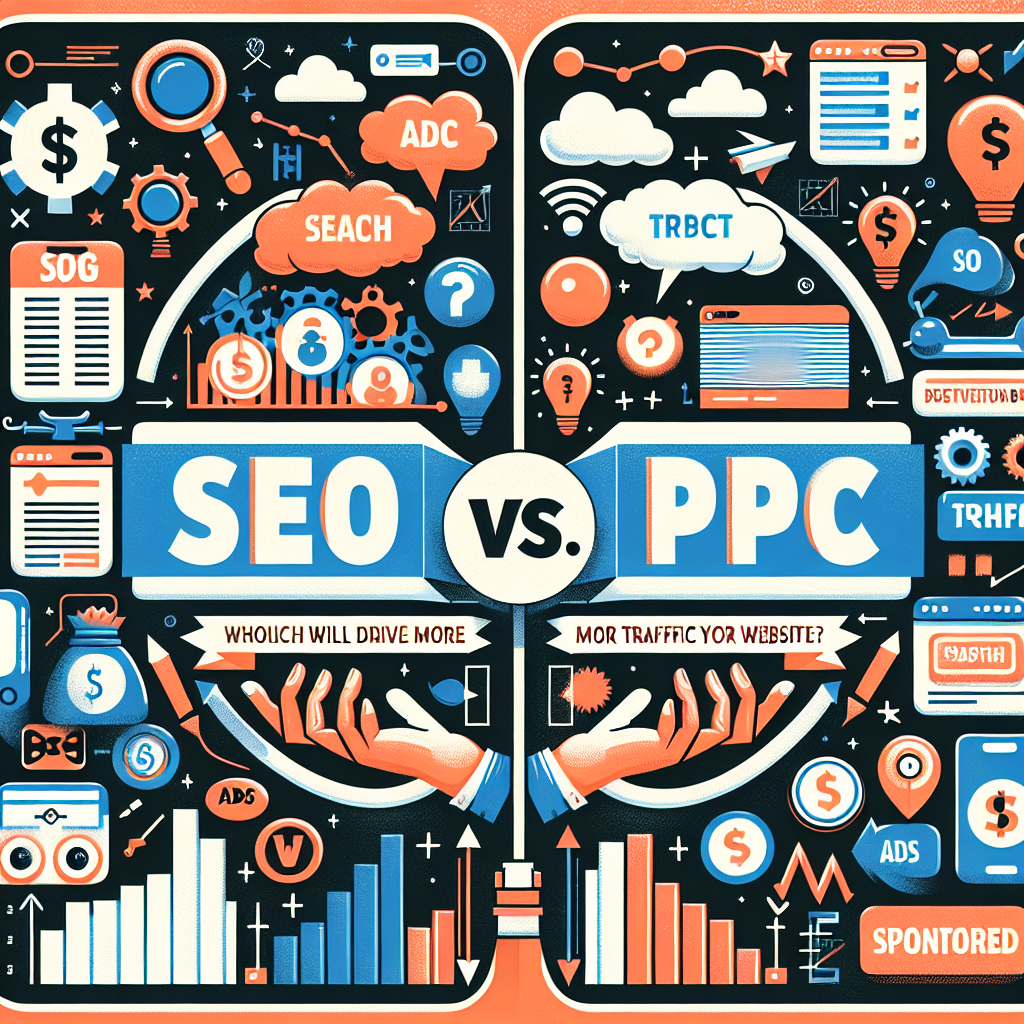In today’s digital landscape, businesses are always looking for ways to attract more traffic to their websites. Two primary strategies often come to mind: Search Engine Optimization (SEO) and Pay-Per-Click (PPC) advertising. Both methods have their merits, but which one is more effective for driving traffic? In this article, we will explore the nuances of SEO and PPC, helping you navigate this critical decision for your online presence.
Understanding SEO: A Long-Term Strategy
What is SEO?
Search Engine Optimization, or SEO, is the practice of optimizing your website to improve its ranking in organic search engine results. This involves a combination of keyword research, content creation, on-page optimization, and link building. The ultimate goal is to increase the quantity and quality of traffic to your site without paying directly for clicks.
Benefits of SEO
Cost-Effective: Once established, a well-optimized website can yield consistent traffic without ongoing investment.
Credibility and Trust: Users tend to trust organic results over paid ads. Being ranked high through SEO can boost your site’s credibility.
Sustainable Results: While SEO can take time to show results, it often provides lasting benefits. A website that consistently ranks high can maintain its position for extended periods with proper upkeep.
Challenges of SEO
Time-Consuming: SEO is not an overnight process. It takes time to see results from your efforts, often requiring months of dedication.
Constantly Evolving: Search engines like Google frequently update their algorithms, meaning your SEO strategy must be flexible and adaptive to maintain rankings.
Diving into PPC: Quick Results
What is PPC?
Pay-Per-Click (PPC) advertising allows businesses to place ads on search engines and pay for each click on that ad. Google Ads is the most common platform for PPC, allowing keywords to trigger ads that appear above organic search results.
Benefits of PPC
Immediate Traffic: With PPC, you can start seeing results almost instantly. As soon as your campaign is live, your ads can drive immediate traffic.
Targeted Ads: PPC offers advanced targeting options. You can target specific demographics, locations, and even the devices used to access the internet.
Control of Budget: You have total control over your spending, allowing you to set daily limits and adjust your budget based on performance.
Challenges of PPC
Cost: While you can control your budget, PPC can become expensive, especially in competitive industries.
Dependence on Budget: Once your budget runs out, your traffic can drop to zero. Unlike SEO, which can provide residual benefits, PPC requires ongoing investment.
SEO vs. PPC: A Side-by-Side Comparison
Time to Results
- SEO: Takes time to build but can lead to sustainable results.
- PPC: Instant results but requires ongoing funding.
Cost
- SEO: Initial investment is often higher, but ongoing costs are lower.
- PPC: Ongoing costs that can increase as competition for keywords rises.
Credibility and Trust
- SEO: Provides organic search results that often appear more trustworthy.
- PPC: Users know they’re ads and may perceive them as less credible.
Longevity
- SEO: Once ranked well, you can maintain a solid traffic baseline with minimal upkeep.
- PPC: Traffic stops when you halt funding; no residual benefits.
Making the Right Choice for Your Business
Consider Your Goals
Choosing between SEO and PPC ultimately depends on your business goals. If you need immediate traffic and can allocate a budget, PPC may be the way to go. However, if you’re looking for long-term, sustainable traffic, investing in SEO might be your best bet.
A Balanced Approach: Combining SEO and PPC
Why not take advantage of both strategies? A balanced approach can provide immediate traffic through PPC while building a foundation for future organic traffic through SEO. Using PPC can also help you identify effective keywords and content strategies that can then inform your SEO efforts.
Conclusion: There’s No One-Size-Fits-All Solution
In the great debate of SEO versus PPC, the answer isn’t straightforward. Each has unique advantages and challenges, so it’s essential to evaluate your business’s specific needs, goals, and resources. By understanding these two powerful digital marketing strategies, you can make an informed decision that drives optimal traffic to your website. Remember, whether you choose SEO, PPC, or a combination of both, the key is to stay adaptable and continuously analyze your results to refine your strategies.
In the end, the goal is to connect with your audience and provide them with the content they’re seeking—so choose the path that best aligns with your business objectives!


